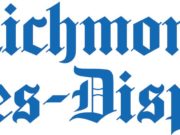Incumbent politicians have a lot of advantages in campaigns. They have a network of donors to call on for support. They have an in with party leaders and lobbyists. Their actions and press releases often make it into news reports.
Making matters worse, in many states, incumbents tilt campaign laws to favor their re-election. By imposing low limits on campaign contributions, legislators can force their opponents to spend more time fundraising instead of speaking with voters. Unfortunately, a new index by the Institute for Free Speech has just named West Virginia one of the three worst states in the nation at protecting political giving freedom. In these states, challengers and political newcomers struggle to get their message out.
These candidates often won’t know they’re running until it’s time to run. Then, they may have to win a primary before worrying about success in November. Meanwhile, incumbents have their entire term to rub elbows with powerful people and increase their name recognition with voters.
The result is a major head start for incumbents, and challengers can’t catch up if contribution limits are too low. Recognizing this problem, the U.S. Supreme Court ruled in 2006 that contribution limits can be unconstitutional if they are “too low and too strict.” The court observed that such low limits can “harm the electoral process by preventing challengers from mounting effective campaigns against incumbent officeholders, thereby reducing democratic accountability.”
Yet, according to the Institute for Free Speech, many states maintain low contribution limits that hinder the political process and restrict First Amendment rights. In a new Free Speech Index on political giving, West Virginia, along with 10 other states, receives an “F” grade.
The Mountain State is arguably the worst state in the country for free political speech. Only Kentucky scores worse in the Free Speech Index, and Kentucky’s limits are actually higher than West Virginia’s in a few areas. West Virginia avoids last place because its population is less than half of Kentucky’s, reducing the amount of funding necessary to bring a candidate’s message to voters.
In West Virginia, individuals can give only $1,000 to candidates, parties and political committees per election. The same $1,000 per election limit exists on contributions from parties to candidates. This means parties are doubly restricted, facing limits both on what they can receive from individuals and on the amount of meaningful support they can provide for their candidates. On top of all this, West Virginia doesn’t adjust its limits for inflation, meaning a citizen’s ability to support their preferred candidates will continue to decline.
In all the debate over what can go wrong when people give money to candidates, we rarely stop to consider the benefits. Making a donation to a candidate or group with shared beliefs is one of the simplest and most effective ways for Americans to make their voice heard. These contributions fund campaign spending that raises awareness and interest in elections, especially among those least interested in government.
Contribution limits stand in the way of this process. They hinder candidates trying to spread their message and make it harder for voters to learn about the choices they’ll be asked to make on Election Day. Perhaps most disappointing of all, they hobble political newcomers trying to shake up the system.
Not all states perform poorly in the Institute for Free Speech’s Index. Eleven states earn “A” grades and allow individuals to donate without limit to the candidates, parties and groups of their choice. Short of that goal, most states can significantly improve their grade by implementing simple reforms, such as adjusting limits for inflation.
States can’t erase all the advantages that come with incumbency, but they can empower challengers and give them a real chance to compete. Until then, citizens of West Virginia must make do with a democracy that is less vibrant and less free thanks to ineffective limits on the freedom to support candidates and causes.
This post originally ran in Herald Dispatch on April 1st 2018.














